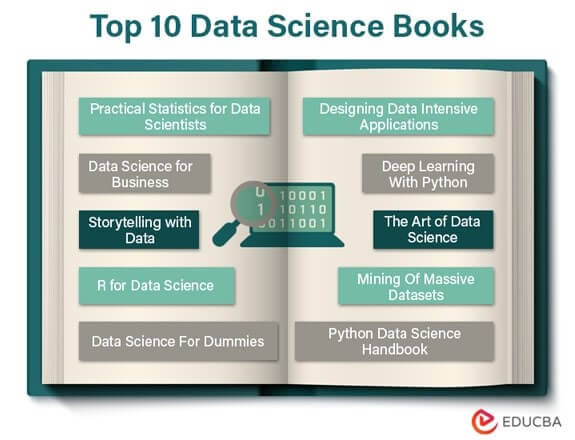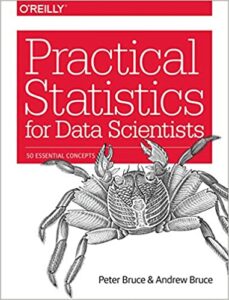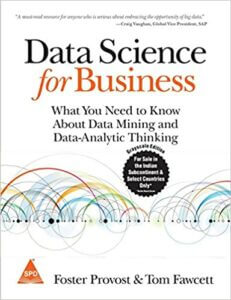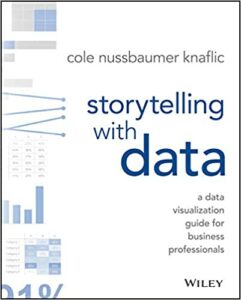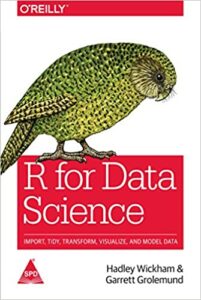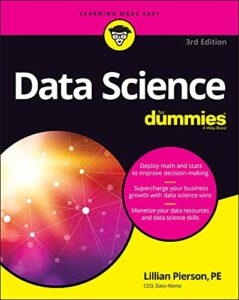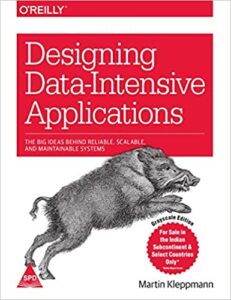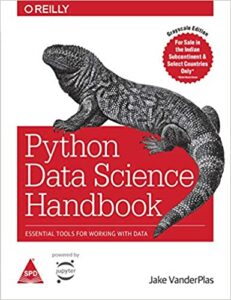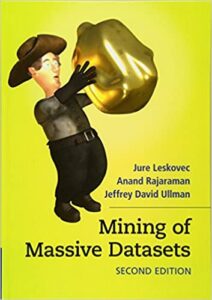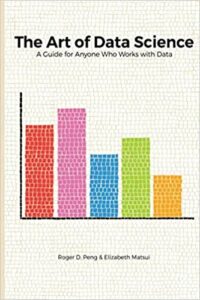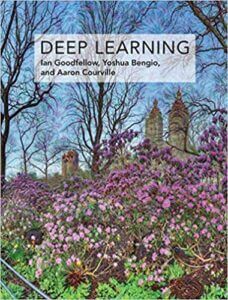Updated September 6, 2023
Best Data Science Books [Updated 2023]
Data science books educate the readers on the combined disciplines that make data science, including statistics, informatics, scientific methods, computing, algorithm processes, and systems. The books explore how data science extracts knowledge from structured, noisy, and unstructured data. It also combines knowledge from natural sciences, IT, and medicine domains and combines programming code with statistical information.
The data science books provided below will give the readers a clear understanding of data science. These are essential reads for anyone desiring to increase their knowledge about the subject or progress in their career.
To help our readers find the books for your requirements, we have provided you with a list of the top 10 data science books, ratings, reviews, and key takeaways.
|
# |
Book | Author | Publishing Date |
Ratings |
| 1 | Practical Statistics for Data Scientists
|
Peter Bruce and Andrew Bruce | 2017 | Amazon 4.4
Goodreads 4.0 |
| 2 | Data Science for Business: What You Need to Know about Data Mining and Data-Analytic Thinking | Foster Provost, Tom Fawcett | 2013 | Amazon 4.5
Goodreads 4.14 |
| 3 | Storytelling with Data: A Data Visualization Guide for Business Professionals | Cole Nussbaumer Knaflic | 2015 | Amazon 4.6
Goodreads 4.40 |
| 4 | R for Data Science: Import, Tidy, Transform, Visualize, and Model Data | Hadley Wickham, Garrett Grolemund | 2017 | Amazon 4.7
Goodreads 4.57 |
| 5 | Data Science For Dummies | Lillian Pierson | 2021 | Amazon 4.6
Goodreads 3.47 |
| 6 | DESIGNING DATA INTENSIVE APPLICATIONS: The Big Ideas Behind Reliable, Scalable, and Maintainable Systems | Martin Kleppmann | 2017 | Amazon 4.7
Goodreads 4.72 |
| 7 | Python Data Science Handbook | Jake VanderPlas | 2016 | Amazon 4.4
Goodreads 4.31 |
| 8 | Mining Of Massive Datasets | Jes Leskovec,
Anand Rajaraman, Jeffrey David Ullman |
2016 | Amazon 4.4
Goodreads 4.36 |
| 9 | The Art of Data Science: A Guide For Anyone Who Works With Data | Roger Peng, Elizabeth Matsui | 2016 | Amazon 4.6
Goodreads 3.74 |
| 10 | Deep Learning With Python | Ian Goodfellow, Yoshua Bengio, and Aaron Courville | 2016 | Amazon 4.6
Goodreads 4.42 |
Let us discuss each book and review it in more detail now.
Book #1 Practical Statistics For Data Scientists
Authors: Peter Bruce And Andrew Bruce
Get this book here
Review:
The book is a stepping stone for beginners and professionals who need to fill in the gaps of formal statistical training. It helps to grasp the skills of statistics, advancements, and the concepts of the statistics utilized for machine learning techniques. It further explores data science-related statistical methods and how to avoid their misuse.
Key Points:
- The reader understands how random sampling can fetch higher-quality datasets and significantly reduce bias.
- One gets to learn the principles of experimental design to derive definitive answers and questions.
- The reader will find the book more beneficial if they have an idea of R programming.
- The reader gets first-hand exposure to exploratory data analysis and random sampling, besides learning the use of regression, detecting anomalies, and main classification techniques.
Book #2 Data Science for Business – What You Need to Know about Data Mining and Data-Analytic Thinking
Authors: Foster Provost, Tom Fawcett
Get this book here
Review:
The book covers MBA curricula as Provost teaches Data Science for Business at NYU. Data Science for Business introduces the basics of data science and surfs through analytic thinking. It empowers the reader to extract information and employ it towards business value. The authors explain in detail how data collection helps in data mining and its techniques. The book is a step-by-step guide for beginners and interested professionals.
Key Points:
- The readers understand the relativity of data science in their organization and how they may use it for competitive advantage.
- A professional learns the current practices in data mining.
- One learns to apply data judiciously as an asset to achieve real business value.
- It’s also helpful for those interviewing for a job in data science.
Book #3 Storytelling with Data – A Data Visualization Guide for Business Professionals
Author: Cole Nussbaumer Knaflic
Get this book here
Review:
The author has kept educationalists and data professional speakers in mind while writing this book. He urges that one must relate the data in the form of storytelling. The author has provided a myriad of insights and information to understand the skills in-depth required to visualize data and decision-making.
Key Points:
- The book helps to learn the fundamentals of data visualization and ways of efficient communication with the use of data.
- The author has explained the concepts well by illustrating real-world examples.
- The reader understands the techniques for reaching the root of the data and relaying it to the audience as storytelling.
Book #4 R for Data Science: Import, Tidy, Transform, Visualize, and Model Data
Authors: Hadley Wickham, Garrett Grolemund
Get this book here
Review:
R for Data Science is the perfect read for someone wanting to speed up their data science activities. The book teaches how to transform raw data using R into an applied data science cycle. Wickham and Grolemund explore packages such as R, tidyverse, and RStudio, making data science fun. The reader learns to perform data wrangling, analyze data, and converse about the outcome. The book is most helpful in understanding the data science cycle and offers exercises after each section.
Key Points:
- The book enables the readers to transform datasets into analysis form.
- Readers get to know the R tools and tips for problem-solving data in varied sizes effortlessly and precisely.
- The users get to examine their data and create hypotheses for testing them further.
- The book helps one to provide summaries to capture signals in the dataset.
Book #5 Data Science For Dummies
Author: Lillian Pierson
Get this book here
Review:
The author has given her expertise and information on data science and cut the cost of hiring a consultant in the simplest way possible. Although the book holds topics for understanding data science, it also helps the reader to formulate the best unique business strategies for data monetization. It addresses concerns such as projects yielding a high return after investing and knowing whether specific data science project ideas would work in the future. It also guides in selecting ideas for best put-throw while maintaining business vision.
Key Points:
- The reader learns the advanced data monetization tactics illustrated in the book.
- Pierson has simplified explanations about language processing that can be useful to both beginners and experienced data science professionals.
- The reader learns to form a combination of data and science to compete with the data professionals.
Book #6 Designing Data-Intensive Applications: The Big Ideas Behind Reliable, Scalable, and Maintainable Systems
Author: Martin Kleppmann
Get this book here
Review:
The book explores the crucial elements of an excellent system design that needs to be scalable, dependable, consistent, competent, and maintainable. Furthermore, the book delves into tools like NoSQL datastores, databases, batch or stream processors, and message brokers. Author Martin Kleppmann has detailed the pros and cons of these tools for processing and data storage. The author has dedicated designing data-intensive applications to help software architects and engineers.
Key Points:
- The book addresses the current system operations and how to handle them more effectively.
- The readers understand the scalability of data and consistency and break down the complexity of the compromise that usually happens while using data science applications.
- The book allows taking a look at the underlying scenarios behind online services and learning from their architectural illustration in the book.
Book #7 Python Data Science Handbook: Essential Tools for Working with Data
Author: Jake VanderPlas
Get this book here
Review:
The author considers that not everyone knows about programming using NumPy, matplotlib, and the pandas. This book will help any programming professional to understand machine language in Python. The code samples in the book work well and warm up the beginners.
Key Points:
- The reader gets hold of the computation and the statistical methods in data-intensive science.
- The book helps to learn advanced Python, like programming professionals.
- The content focuses on the analysis, manipulation, visualization, and learning of the data for Python-enabled data science.
BOOK #8 Mining of Massive Datasets
Authors: Jes Leskovec, Anand Rajaraman, Jeffrey David Ullman
Get this book here
Review:
The author gives an in-depth knowledge of algorithms and techniques in the book for data mining. It’s a good read if you are a data enthusiast or a data scientist. The book also holds the exercise to ensure quick checks. It beautifully combines information about machine learning, design, and analysis of the algorithms, etc.
Key Points:
- Readers learn the practical algorithms for problem-solving applicable to data mining and large datasets.
- They get a chance to understand the map-reducing framework, which is one of the essential tools for the automated parallelization of algorithms.
- The authors have focused on giving the reader insights into the tricks of locality-sensitive hashing for data mining.
Book #9 The Art of Data Science: A Guide For Anyone Who Works With Data
Authors: Roger Peng, Elizabeth Matsui
Get this book here
Review:
The Art of Data Science explores the different ways to analyze data. The author is a professional handling data analysis and performing data analyses. They lay out the various methods that give coherent output and mark out those that do not. The authors have written the book for those entering the field of data science and those managing it.
Key Points:
- Readers get to learn different methods of analyzing data science.
- The author has simplistically laid out the data science methods for beginners.
- The book details the data handling for specific scenarios.
BOOK #10 Deep Learning
Authors: Ian Goodfellow, Yoshua Bengio, and Aaron Courville
Get this book here
Review:
Authors have tried to bring together all the essential materials for designing and implementing deep learning algorithms. The book consists of math theories, the basics of algebra, probability, and vector calculus. The book works well with readers having a basic knowledge of deep learning.
Key Points:
- Readers understand the deep learning techniques used by professionals in the industry.
- Users learn about the research from topics like linear factor models, autoencoders, representation learning, and representation learning.
- The book introduces a wide range of topics in the book related to the field of deep learning for real-world applications.

